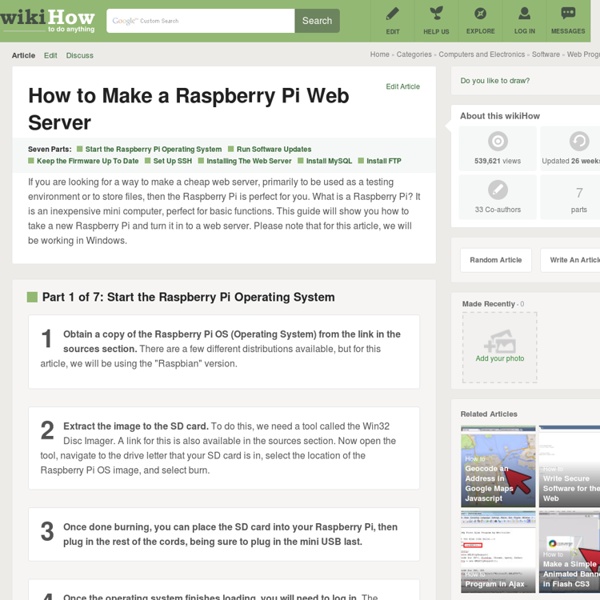



How to Overclock your Raspberry Pi - Tutorials Blog Do you want to safely overclock your Raspberry Pi? Here’s how you need to do it. There are a few articles out there on overclocking your Raspberry Pi, and I followed them but it didn’t work. So after some Googling and Stack Overflow work I find the answer, and I’m here to save you some time. Find your current clock speed There are several ways to find out what you Pi is running at currently. cat /proc/cpuinfo After running this you should see the following output: Processor : ARMv6-compatible processor rev 7 (v6l) BogoMIPS : 697.95 Features : swp half thumb fastmult vfp edsp java tls CPU implementer : 0x41 CPU architecture: 7 CPU variant : 0x0 CPU part : 0xb76 CPU revision : 7 Hardware : BCM2708 Revision : 000f Serial : 0000000035dfc68c Note the “BogoMIPS” is at 697.95. cat /sys/devices/system/cpu/cpu0/cpufreq/scaling_cur_freq Which displays your frequency in Hz, which should be 700000. The best way to see what your Pi is really running is by using the following: vcgencmd get_config arm_freq
RPi VerifiedPeripherals Back to the Hub. Hardware & Peripherals: Hardware and Hardware History. Low-level Peripherals and Expansion Boards. Screens, Cases and Other Peripherals. A note about this page: For USB devices, please specify if they required a powered hub Notes 19-Apr-2012: Now that the Model B board is shipping, details added should relate to this board and the default Debian distribution unless stated otherwise. (A) - Relates to model A production board (B) - Relates to model B production board (!) Discuss: If you are adding to a product list it would help clarity if entries are kept/added in alphabetical order. Power Usage Notes Model B Hardware Revisions and USB Power limitsHardware Revision 1.0 The original Model B board had current limiting polyfuses which limited the power output of each USB port to approximately 100 mA. Linux Driver Issues Powered USB Hubs This section has been moved to a separate page. USB Remotes USB Keyboards USB Mouse devices USB Real Time Clocks
Rasberry pi Way back when the Kinect was first released, there was a realization that this device would be the future of everything 3D. It was augmented reality, it was a new computer interface, it was a cool sensor for robotics applications, and it was a 3D scanner. When the first open source driver for the Kinect was released, we were assured that this is how we would get 3D data from real objects into a computer. Since then, not much happened. We’re not using the Kinect for a UI, potato gamers were horrified they would be forced to buy the Kinect 2 with the new Xbox, and you’d be hard pressed to find a Kinect in a robot. 3D scanning is the only field where the Kinect hasn’t been over hyped, and even there it’s still a relatively complex setup. This doesn’t mean a Kinect 3D scanner isn’t an object of desire for some people, or that it’s impossible to build a portabilzed version. This isn’t the first time we’ve seen a portablized Kinect. The problem facing [Mario] isn’t hardware.
A beginners Resource for the Raspberry Pi computer - Simon The Pi Man RPi Guides Back to the Hub. Community Pages: Tutorials - a list of tutorials. Learn by doing. Guides - a list of informative guides. Make something useful. Projects - a list of community projects. Tasks - for advanced users to collaborate on software tasks. Datasheets - a frambozenier.org documentation project. Education - a place to share your group's project and find useful learning sites. Community - links to the community elsewhere on the web. Games - all kinds of computer games. Introduction This page contains a set of guides to show readers how to do common or useful tasks on the system. The Raspberry Pi Forum has a list of Project Ideas & Links, to help people get started. Please add links to your guides (and ones you find interesting). Fill in each section: Guide Title (as a link to the project webpage or connected wiki page) Guide Description (including any additional links or information Tags (key words related to the item, i.e. System Tasks Easy Medium Advanced